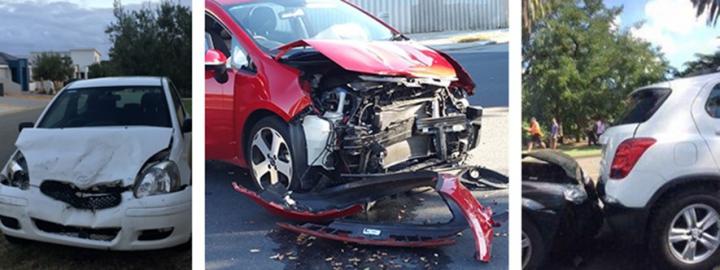Making an insurance claim
If your car is damaged in a motor car accident, you may want to make a claim on your insurance for the cost of repairs. Whether you can make a claim depends on what type of insurance you have. You may need legal advice before deciding what to do.
This information will help you to understand some of the issues to consider before you use your insurance, and what to do if you have problems with your insurer.
You can find information about what help Legal Aid WA can give you on our webpage, Get help with car accidents.
What should I consider before making a claim on my insurance for property damage?
Before deciding to make a claim on your insurance policy consider:
- Will it increase your insurance premiums or prevent you getting discounts on premiums in the future? Most insurers offer discounts on premiums if you have not made a claim before.
- Will claiming negatively impact on your ability to get insurance in the future?
- Will you have to pay excess? Check your policy for how much you have to pay.
When do insurers not pay claims?
Most insurance policies have special rules about when they will or won't pay. It is important to read your policy carefully and understand what type of cover you have.
Some common reasons insurers may not pay are:
- The insurer was not given relevant information when the policy was taken out or renewed. For example, a driving conviction was not revealed.
- The crash wasn’t reported to the police or to the insurer.
- The driver was under the influence of alcohol or drugs.
- The driver was unlicensed.
- The car was poorly maintained. For example, if the car was not roadworthy.
- False details were given about a claim or your driving history.
You should get legal advice if your insurer refuses to pay your claim.
When to consider not claiming through insurance
You might not want to make a claim through your insurance if:
- there is very minor damage to your car, or
- the cost of repairing the total damage is less, equal to or just over the amount of the excess.
Even if you don't want to make a claim, you may still need to tell your insurer about the accident.
When to consider not claiming on your policy, but taking separate action against the other driver
This has the best chance of a good outcome if you are not at fault and the other driver:
- is at fault
- is insured, and
- admits liability.
You should get legal advice before following this option.
You may not be able to make a claim later through your insurer if you change your mind after starting your own action against the other driver. Your insurer may refuse to help if your actions affected their ability to recover the debt.
It may be risky to make a claim in court against the other driver:
- Court may be costly.
- You may not recover your debt or costs.
- If you lose, you will normally have to pay your costs as well as the other driver’s costs.
- You may not get the outcome you want!
I want to make a claim using my insurance, but I can’t afford to pay the excess
If you can’t pay your excess because you are in financial difficulty, you can write to your insurer asking to:
- have the excess deducted from the claim to be paid to you (if they require an up-front payment), or
- pay the excess in instalments.
You can generate this letter using the Financial Rights Legal Service website.
If the insurer refuses your request, you should get legal advice. You may be able to make a complaint to the insurer through its internal dispute resolution process. If this is unsuccessful and you are still in dispute, you can go to the free independent Australian Financial Complaints Authority (AFCA) to have the decision reviewed.
What if I have a complaint about my insurer?
Read your policy papers carefully to see your rights.
At first, you should make a complaint to the insurer. Insurers should have an internal dispute resolution process in place. If the complaint cannot be resolved internally, you can make a complaint to AFCA to have the issue reviewed.
Resources
Reviewed: 6 May 2024
